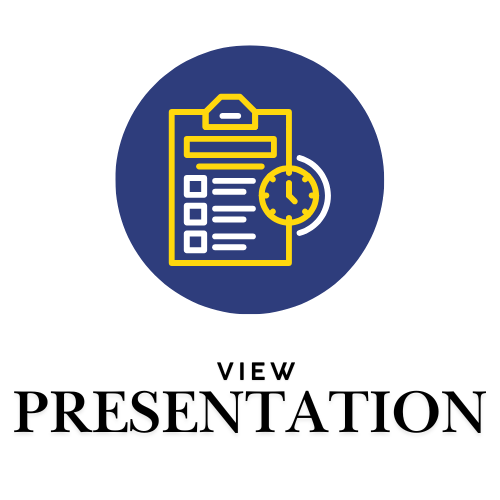Utility Billing Proposal: A Public Update
Recap of Monday night's Public Hearing
Resident Engagement and the Utility Billing Proposal: A Public Update
At Monday night’s City Council meeting, we held a public hearing on a proposal to change how residents are billed for sewer, stormwater, and solid waste (trash) services. Rather than receiving six separate bi-monthly utility bills per year, the proposed change would have placed these charges directly on each property’s San Bernardino County property tax bill beginning in Fiscal Year 2025–26 (July 1, 2025).
The City considered this proposal and will consider others (not this item) in the future due to ongoing fiscal challenges associated with our General Fund, which pays for vital city services like public safety, street & road maintenance, parks and other critical infrastructure. Reductions in sales tax, additional State unfunded mandates and other inflationary costs have forced the City to examine every opportunity to save on costs and improve our revenue to ensure that we can continue to provide the services that all of our residents rely upon and what makes Upland truly special.
Additionally, the City considered this proposal in response to California Senate Bill 998, which significantly restricted local governments’ ability to enforce payment of delinquent utility accounts. Prior to SB 998, water shutoffs served as an effective last-resort tool to encourage payment. Since those tools were removed by the State, our local utility delinquencies have grown to over $922,000 across more than 400 accounts for sewer, storm drain and trash (and these figures do not even include water delinquency amounts). As you can see, this alarming trend which was a direct result of the State’s actions to limit local control, presents an increasing risk to the City’s enterprise funds—and ultimately, to the General Fund, which is necessary to pay for many vital city services.
Why This Proposal Was Put Forward
This proposal wasn’t about intentionally creating hardship for our residents—it was about protecting the long-term health of the City’s utility and infrastructure systems. With fewer tools to collect outstanding payments, placing utility charges on the tax roll was seen as a way to:
· Improve revenue collection
· Reduce administrative costs of billing and increase efficiencies with limited taxpayer dollars,
· Stabilize enterprise funds,
· Prevent compliant “good” ratepayers from subsidizing “bad ratepayers” who do not pay their bills
· Limit ongoing reliance on the General Fund to backfill growing utility revenue losses,
Delinquencies at this level compromise our ability to plan and fund critical capital improvement projects—like street rehabilitation and stormwater upgrades—that residents depend upon.
How the Process Started
This proposal was introduced on February 10, 2025, as Item G on the City Council’s consent calendar. While the consent calendar is typically reserved for routine items, I believe policy changes that impacted all property homeowners warranted more discussion and visibility. That’s why I pulled the item and ensured it was stated for the public what the item was about—because residents deserve to be included in decisions that affect them directly.
Public Engagement and Community Response
As a part of our public engagement process, the City solicited community feedback. In my two years serving on the City Council, I have never received more public feedback on a single issue. Your emails, phone calls, workshop attendance, and comments during meetings made it clear: residents wanted answers, and they wanted a voice in the process.
To facilitate that, Councilmember Maust and I insisted on public workshops so residents could hear the facts, ask questions, and offer input. I appreciate everyone who participated, and I also want to acknowledge the thoughtful and concerted effort made by city staff to refine the proposal based upon our residents’ feedback. For example, Staff suggested issuing a $14.04 rebate check right away to pass along these savings directly back to residents rather than waiting a long period of time to see the savings, developing a secondary public notice in addition to the required notice to notify residents of the public hearing, and creating an opt-out option for sewer and trash for all homeowners who didn’t wish to participate in the new program. In addition, they were able to clarify all of the projected savings for residents, the city and how other cities utilize this system of billing to ensure billing efficiency within their community.
Additional Valuable Public Information That Provides More Background
At Monday’s public hearing, the proposal was pulled from the agenda before City staff could present their formal presentation. That meant neither the public nor the full Council
had the benefit of hearing the detailed background, legislative history, and financial implications that informed the proposal.
While the item did not move forward, I believe the information prepared for that hearing is still important—and worth sharing. That’s why I’ve included the presentation originally scheduled for the public hearing for all residents to review. It clearly lays out:
· The impacts of State Senate Bill 998 on the City’s utility billing enforcement,
· The current delinquency crisis,
· The risk to the General Fund and capital projects,
· Proposed resident savings and protections, and
· The overall rationale for considering the change.
I believe residents deserve access to that information so they can see the full context behind this conversation and why it was brought to the table in the first place.
Where I Stand and What Comes Next
I was prepared to vote No on the proposal. Not because I disagreed with the goals, but because I felt the public outreach wasn’t broad or deep enough, and residents didn’t have sufficient time or opportunity to engage with the information. Too many residents still had outstanding questions, and in that environment, it’s right to pause.
At the same time, I take seriously the financial warning signs. We cannot ignore the reality that continued delinquencies are creating structural problems for the City’s budget—problems that ultimately risk deferring roadwork, delaying upgrades, and straining the services our residents rely on. As a city and as a Council we cannot also ignore the reductions in sales tax, additional State unfunded mandates and other inflationary costs which have forced the city to examine ways to save on costs and improve our revenue.
This Council and our City staff remain committed to finding balanced solutions that stabilize utility funds, limit burdens on the General Fund, and ensure every resident and business pays their fair share—while also making sure we can continue delivering the important services, programs and projects that make our City a special place to call home.
Looking Ahead
I remain committed to a process that is open, accountable, and inclusive. Whether you supported or opposed this proposal, your participation helped elevate the conversation. That matters. I will continue advocating for stronger outreach, clearer communication, and policies that reflect both sound fiscal stewardship and respect for the residents we serve.
Thank you to everyone who engaged—your voice mattered, and it continues to matter.
To view the staff presentation and learn more about the financial impacts and policy considerations, I encourage all residents to view the presentation here. Let’s stay informed. Let’s stay engaged. And let’s continue working together to move Upland forward.




